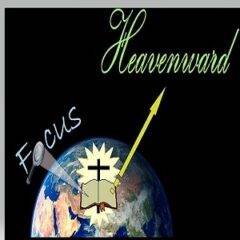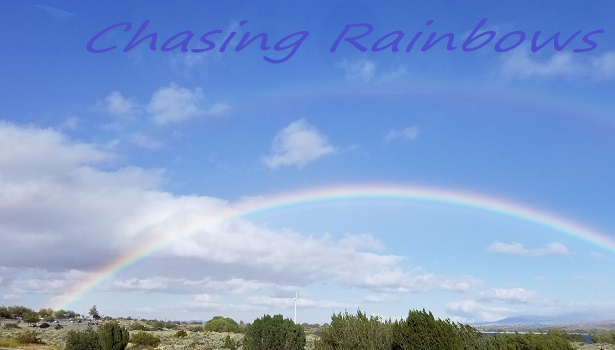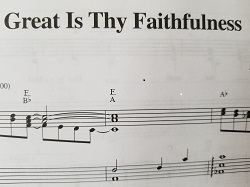I wrote this study to share at the Assisted Living Home that my Mom now resides at. They offer a devotional group every Tuesday at 10 a.m. and I was blessed to have the opportunity to encourage my Mom and some of her friends and residents with God’s word. It is a delight for me to watch those who are getting up there in years have the desire to serve God in any way they are able. Sometimes it may just be an encouraging hug and smile. I have been given the blessing of watching my Mom bloom spiritually in her nineties! A few months ago she told me that God had a plan for her right where she was with the ‘older’ people! She is developing a heart of compassion towards those who are lonely and she has taken it upon herself to become an encourager. God is truly amazing to have allowed me to witness this caring heart in my Mom in her senior years!
Several weeks ago, while in the car with my six year old granddaughter, she asked me this question. “Mina, do you have pictures of Tyrannosaurus Rex?” My reply was yes, I think we may have a few pictures in a book. She then proceeded to let me know what she really meant. She wanted to know if I had pictures of myself as a child with a T-Rex! Apparently, her Daddy had told her that dinosaurs lived a very long time ago. She had concluded that I must have lived with them! To a six year old, I am beyond old!
Try to think back to when you were in your twenties. Remember how you would look at people in their thirties and forties and think they were pretty old?! Then, suddenly, when you find yourself in your fifties, you realize you have friends in their sixties and that age no longer seems so old. Now, as I’m pushing sixty personally, seventy still seems rather young to me! Age, at least the number of our years, is relative. How old or how young you are depends on your comparison. For instance, to my grandchildren, I am old. To those in their nineties, I am still young!
There are many accounts of old people in the Bible.
In the book of Genesis, we read that Adam lived to be 930 years old (Genesis 5:5). In comparison, you are all just infants! Still in the book of Genesis, we read that Seth was 912 (Gen 5:8), Enosh lived to be 905 (Gen 5:11), and Jared died at 962 (Gen 5:20).
You’ve heard of Noah. He lived to the ripe old age of 950 years old. By the way, the ark was built over a span of approximately 100 years and Noah began construction of it when he was about 500 years old! Now that seems extremely old to us as we consider age, but when you take in account that he lived to the age of 950, Noah was only middle aged when the construction of the ark began! Isn’t it encouraging to know that at 500 years old God still used Noah?! What does that mean for us? No matter our age, God has a purpose and use for His children! Our understanding of time is measured in what we know, so it has limits. God’s measure of time is eternal.
Methuselah has the honor of having the longest life span recorded – he reached the age of 969 years before he died. So all of us should be thinking that we’re pretty young by now!
Jacob, the father of Joseph, only lived to the age of 147. Young by the standards of those who lived before him.
There are some good things and not-so-good things about aging. Try to recall when you were a teenager. You probably got up each morning and practically jumped out of bed. You didn’t know what sore muscles were and the energy to do everything was readily available! That is a good thing. The downside for most teenagers, is the need to fit in with the crowd. You may have acted or dressed a certain way in order to look like everyone else.
As you become older, you may not have the same boundless energy, but independence develops, and the constraints of looking or acting like those who are the same age disappear. The pictures I’ve seen of my Mom when she was a young adult are striking. She was fashionable and wore the tight sweaters that were popular in the 1920’s and 1930’s. Isn’t it true that the style of clothing as you become older is chosen for its comfort rather than if it’s trendy or not? I remember thinking it was odd that my Mom would find a certain kind of top she liked and she’d get it in every color. For her, it was practical, it was comfortable and it worked! There was no concern of needing to ‘fit in’ with the crowd. This is a good thing! What does the Bible say about becoming older? We’ll look at Psalm71:5-9 and break it down into sections.
Ps 71:5-9 For Thou art my hope; O Lord GOD, [Thou art] my confidence from my youth. 6 By Thee I have been sustained from [my] birth; Thou art He who took me from my mother's womb; my praise is continually of Thee. 7 I have become a marvel to many; for Thou art my strong refuge. 8 My mouth is filled with Thy praise, and with Thy glory all day long. 9 Do not cast me off in the time of old age; do not forsake me when my strength fails.
We can read the above scripture and be encouraged by it as we apply it to our lives right now. For instance, if you know Jesus as your Lord and Savior, you will be able to look back upon your life and see His hand in supplying you with exactly what was needed through the good times and the difficult times. God gave us life, He caused us to born into this earth. And, like the Psalmist, our praise should be continually of God. He is the reason we live! King David was able to proclaim these truths because he trusted in God completely. When we place our complete trust in God for His direction and His answers, we find peace. We realize we’ve already been chosen for His team! There is no pressure to try to fit in, to look like everyone else. We also no longer feel the need or have the responsibility to figure everything out. An important question then to ask ourselves personally is, ‘Have we placed our trust in the One True God, or have we placed it in someone or something else?’
Most older individuals have learned that they cannot trust in their health. It becomes obvious that our body has a life span as it begins to break down. But what about other things we might trust rather than fully relying upon God? We may trust in someone or something in the sense of counting on them, but how often are we disappointed? Money doesn’t last and really can’t buy true and fulfilling happiness. People, even our closest family and friends, are not perfect and therefore can sometimes be a discouragement or can disappoint us even without meaning to. God is the only constant in our lives. With Him there are no variables. He has never changed and will never change. He is always available and accessible. He alone provides true joy even in the midst of uncertainty and pain. The conclusion?
God is our hope,
God is our confidence,
He has sustained us,
He will continue to do so and,
Our response should be continuous praise to Him!
Let’s continue with Psalm 71 and look at the next verse.
Ps 71:5-9 For Thou art my hope; O Lord GOD, [Thou art] my confidence from my youth. 6 By Thee I have been sustained from [my] birth; Thou art He who took me from my mother's womb; my praise is continually of Thee. 7 I have become a marvel to many; for Thou art my strong refuge. 8 My mouth is filled with Thy praise, and with Thy glory all day long. 9 Do not cast me off in the time of old age; do not forsake me when my strength fails.
David, our Psalmist, says he ‘had become a marvel to many’. Consider. He was just a shepherd boy when he fought off Goliath with a slingshot and a stone. This same boy became King and reigned for forty years! It is amazing what God can do with a life, how He orchestrates His perfect plan.
I’m sure many of you have the most incredible stories of God’s hand in your lives. It is a blessing in older age to look back and recognize how God has protected you, encouraged you, and strengthened you. Some people may even look at your long life in amazement as they have seen your ability to remain steadfast in God even through difficult and scary times. It is a marvel to watch God’s work! A blessing of becoming older is being able to see God’s story in your life. As you look back and see His care and guidance, your assurance of His continued work in your life grows.
I love that the second part of Psalm 71:7 says, “for Thou art my strong refuge”. Consider. What is a refuge? The Hebrew translation of this word [machaceh] means a shelter, hope, a place of refuge, trust.
God is our refuge. Our shelter, our hope and our trust. This truth is incredibly comforting. Whether we consider ourselves to be young or old, we have a place of hope. We have Someone to trust. Our nation seems to be taking a turn away from God rather than following Him as our founders did. Some of you can recall a television show from years ago, ‘I Love Lucy’. There was no foul language, no violence, and no morality issues in that series – it was just a funny show, made for entertainment. I must be getting old because I can hardly find a television show that I believe is decent today. Perhaps things really are just getting worse. Regardless, there is truth we can stand on. God is in control and He is not at all surprised at how things are going in the world. In fact, He knows the whole story from beginning to end. And, we can completely trust Him! When life seems bleak and our paths take a difficult turn, when exhaustion sets in or pain is something to be dealt with on a daily basis, you name it, in any circumstance – God is our place of comfort, our hope for the future and our shelter from the storm.
Let’s not miss out on the word that precedes ‘refuge’ in Psalm 71:7. It says, “strong” refuge. Strong: great power, force and authority. I’ve noticed that as I get older, I’m not as physically strong as I used to be! My arm muscles seem to have fallen from the tops of my upper arms! Some of you may notice that the strength in your legs has decreased as you’ve aged. Eyesight changes, balance can change and the need for a cane or walker for support may become necessary. The brand of hearing aids is a topic of conversation in older circles. But there should be no discouragement in these facts of aging. Why?
According to the Bible, strength is found in God. Now you may not be able to physically do the things you want, but when our strength is found in God, He will give you the ability to do whatever He desires of you. God is our force – our drive – and He is our security – our protection. Consider. If God was powerful enough to cause a young shepherd boy to slay a giant, and commission Noah to build an ark at the age of 500 years old, then He is able to use anyone, regardless of age or ability, for His glory!
There is a story of a woman named Joni Eareckson Tada. You may have heard of her name. She became paralyzed from her neck down when she was quite young. God has used her life to encourage many thousands of people even though most of her life has been spent in a wheelchair.
The second reason we can be encouraged is that every step we move forward here on earth brings us closer to our eternal destiny! Heaven. Forever with God. In the book of Revelations there is a beautiful description of heaven. This particular section of scripture is close to my heart as it is the one I read with my Dad just weeks before He died. I remember that as we read this together, he was peaceful even though he was in significant pain. He was comforted and had a smile on his face as he closed his eyes and pictured the place he was being called home to in a short while. His body was breaking down but He trusted fully in the work of Jesus on the cross, and he had been given the assurance through his trust in Jesus that his soul would live on. God was his strong refuge even through the process of a dying physical body.
Re 21:4 and He shall wipe away every tear from their eyes; and there shall no longer be [any] death; there shall no longer be [any] mourning, or crying, or pain; the first things have passed away." I encourage you to read Revelation 21:1-27.
Did you know that being old and gray is a privilege? Not everyone gets this opportunity.
Pr 16:31 A gray head is a crown of glory; It is found in the way of righteousness.
The Hebrew words in this scripture can actually be translated to say, “old age is beautiful”!
Pr 20:29 The glory of young men is their strength, and the honor of old men is their gray hair. (The word ‘honor’ in this verse means magnificence, ornament or splendor – beauty) Consider. The one thing that comes with age is experience. An older person has the blessing of looking back and seeing God’s faithfulness in their life.
Just as God showed His love and faithfulness to the Jews, God’s children can trust that He will continue to be faithful, “even to old age and even in graying years”.
Isa 46:4 Even to your old age, I shall be the same, and even to your graying years I shall bear you! I have done it, and I shall carry you; and I shall bear you, and I shall deliver you.
Job 12:12 "Wisdom is with aged men, with long life is understanding.
We do need to be careful. Old age is not to be held above those who are younger. There are many young individuals who are wise and have understanding. Both youth and age have advantages and we can all learn from and help one another.
Perhaps the encouragement that can be taken is that even in old age, you have many things to offer. If God has planned for your life to reach well into the eighties and nineties and even beyond, you can be sure He has a reason for it. Consider it an honor that He still is working through your life for the sake of His glory!
In the book of Titus, there is a list of characteristics for older men and older women. (Titus 2:2-3)
Older men are to be:
temperate, dignified, sensible, sound in faith, in love and perseverance.
Older women are to be:
reverent in their behavior, not malicious gossips, not enslaved to much wine, teaching what is good.
When we are tempted to wonder about our usefulness or our purpose, especially as we get older, the above lists give a clear directive of what we are to be about doing.
In the book of Hebrews, we read about Jacob as he was dying. According to Genesis 47:28, he was 147 years old.
Heb 11:21 By faith Jacob, as he was dying, blessed each of the sons of Joseph, and worshiped, leaning on the top of his staff.
We are given a picture of an old man, feeble and weak. As he leaned on his cane, he blessed his grandchildren. Most important to note is Jacob’s worship of God. One of the commentaries I read says,
“Nothing was more natural than that the old man should lean reverently forward, and incline his head upon the top of his staff, and adore the covenant faithfulness of his God.” (Albert Barnes NT Commentary)
Jacob expressed his gratitude towards God. He had the assurance that God would fulfill His promises. Jacob was weak in his body but remained strong and hopeful in his faith. God was his strong refuge.
The assurance that God is your strong refuge, your hope, your confidence and your strength will lead you to praise and worship of Him for His promises. Sometimes, it is easier to complain than to think of what is good. When you realize that your very breath comes from God, and that He has your life planned for His glory, there is much to be thankful for. The next verse in Psalm 71, verse 8, says “My mouth is filled with Thy praise, and with Thy glory all day long”.
Ps 71:5-9 For Thou art my hope; O Lord GOD, [Thou art] my confidence from my youth. 6 By Thee I have been sustained from [my] birth; Thou art He who took me from my mother's womb; my praise is continually of Thee. 7 I have become a marvel to many; for Thou art my strong refuge. 8 My mouth is filled with Thy praise, and with Thy glory all day long. 9 Do not cast me off in the time of old age; do not forsake me when my strength fails.
Let’s recognize a few key things in this scripture. First, the words, ‘my mouth is filled’. Specifically, the Psalmist’s speech is filled or confirms God’s glory, honor and majesty. And notice this is not a one-time thing. It is continual – all day long. Perpetually. David remains in the place of offering God praises continuously. As you look back at God’s faithfulness in your own life and ‘marvel’ at His guidance and protection, does praise for who He is and what He has done fill your mouth?
Consider how this attitude might be an encouragement to those around you! Having an attitude of praise to God in all circumstances is an incredible tool in encouraging someone else. Just a smile and friendly hello or sincere question of concern can lighten someone’s day.
Read what this commentary (Patrick/Lowth/Whitby/Lowman) says about Ps 71:8, “And that I shall still have abundant cause to praise without ceasing thy most magnificent goodness towards me”.
Ps 35:28 And my tongue shall declare Thy righteousness [And] Thy praise all day long.
Ps 146:2 I will praise the LORD while I live; I will sing praises to my God while I have my being.
Our hearts should be filled with gratitude because of God’s goodness to us. His faithfulness to His children produces an assurance of His love and protection for all of their life. The recognition of this truth can then lead us to know that even into old age, God will not forsake His children. He will not abandon us just as He did not abandon Jacob. Look at Psalm 71:9.
Ps 71:5-9 For Thou art my hope; O Lord GOD, [Thou art] my confidence from my youth. 6 By Thee I have been sustained from [my] birth; Thou art He who took me from my mother's womb; my praise is continually of Thee. 7 I have become a marvel to many; for Thou art my strong refuge. 8 My mouth is filled with Thy praise, and with Thy glory all day long. 9 Do not cast me off in the time of old age; do not forsake me when my strength fails.
David, our Psalmist, calls to God for His help just as he did when he was young. He requests of God to continue to use him even in his older age and weakness. God does not discard us when we become old. He will continue to give His strength to His children. Our bodies may become weak, but our souls remain strong in Christ.
Ps 71:18 And even when I am old and gray, O God, do not forsake me, until I declare Thy strength to this generation, Thy power to all who are to come.
Ps 92:13-15 Planted in the house of the LORD, They will flourish in the courts of our God. They will still yield fruit in old age; they shall be full of sap and very green, to declare that the LORD is upright; He is my rock, and there is no unrighteousness in Him.
Isa 46:4 Even to your old age, I shall be the same, and even to your graying years I shall bear you! I have done it, and I shall carry you; and I shall bear you, and I shall deliver you.
Ps 73:26 My flesh and my heart may fail, But God is the strength of my heart and my portion forever.
Charles Spurgeon, in his ‘Treasury of David’, says this, “Old age robs us of personal beauty, and deprives us of strength for active service; but it does not lower us in the love and favour of God”.
If you know Jesus as your personal Lord and Savior then you have seen Him work throughout your life for His glory. His blessings abound and will continue to do so even through your aged years and weakness. We can all have this hope in Christ and continue to be used by Him if we trust in His work on the cross. It’s never too late to come to an understanding of who Jesus is and recognize your need for His grace.
John Wesley wrote the following on his 86th birthday. “This day I enter on my eighty-sixth year. I now find I grow old:
(1) My sight is decayed, so that I cannot read a small print, unless in a strong light.
(2) My strength is decayed, so that I walk much slower than I did some years since.
(3) My memory of names, whether of persons, or places, is decayed, till I stop a little to recollect them.
What I should be afraid of, is, if I took thought for the morrow, that my body should weigh down my mind, and create either stubbornness, by the decrease of my understanding, or peevishness, by the increase of bodily infirmities; But Thou shalt answer for me, O Lord my God.”
Whether you feel as if you lived with the dinosaurs or even perhaps think you look like you may have lived in the prehistoric time, the blessing of God’s favor and presence is available to each of His children at any age. There is no need to fear getting old if your faith is placed in the one true Eternal God of the Bible. Old age is a crown of glory and a blessing.
2Co 4:16 Therefore we do not lose heart, but though our outer man is decaying, yet our inner man is being renewed day by day.







